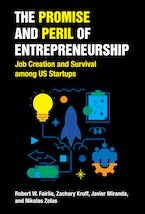Dr. Kleingartner is Professor of Policy Studies and Management and the Founding Dean of the UCLA School of Public Policy and Social Research. He has been on the faculty of UCLA since 1964. He chaired the committee that recommended and designed the UCLA School of Public Policy and Social Research and served as Dean during its first two years (1994 -1996). From 1997 – 1999 Dr. Kleingartner served as Chair of the UCLA Academic Information Technology Board (AITB), which set policy in the areas of computing and digital technology.
From 1975 to 1983, Professor Kleingartner served the nine-campus University of California System as Vice President for Academic and Staff Personnel Relations. During that period, he had responsibility for the human resources function for a workforce in excess of 100,000 faculty, management and staff. He was responsible for personnel policies, affirmative action programs, collective bargaining and employee relations, compensations and salary administration, training and development, the UC retirement system, employee benefits, faculty housing, conflict of interest, and information practices.
Professor Kleingartner founded the Human Resources Round Table (HARRT) at UCLA, a membership organization, in 1986. HARRT’s primary objective is to enhance the practice and teaching of management by fostering close ties between academic and human resources executives.
He is the creator and co-executive producer of a major CD-ROM and World Wide Web project entitled Global Windows: The Guide to Business Success — Japan (1997). The site is an authoritative guide for conducting business with the Japanese. A second website, Global Window: The Guide to Business Success – China s in development and scheduled to go online in 2002
Dr. Kleingartner’s publications have dealt with such topics as international human resources management, higher education, employee relations, management of creative professionals, cultural policy, and multimedia education in professional development.
SELECTED BOOKS & PUBLICATIONS
Flexible Production and the Transformation of Industrial Relations in the Motion Picture and Television Industry
Kleingartner, A. and Paul, A. Industrial and Labor Relations Review 47, no. 4 (1994): 663-678.
Human Resource Management in High Technology
Kleingartner, A. and Anderson, C. Lexington, MA: Lexington Books, 1987.
Human Resource Management in High Technology
Kleingartner, A. and Anderson, C. Lexington, MA: Lexington Books, 1987.

